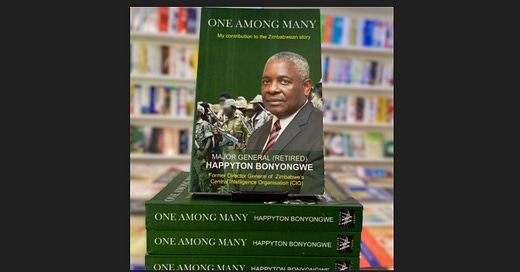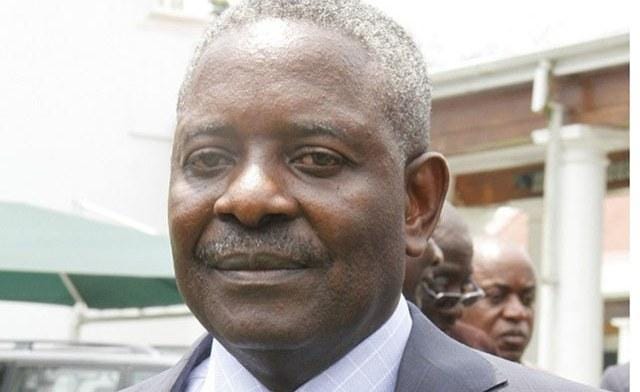Zimbabwe: ex-spymaster details counter-espionage success in his book
In his book, One Among Many: My Contribution to the Zimbabwean Story, former Director-General of Zimbabwe's Central Intelligence Organisation (CIO), Happyton Bonyongwe, offers a rare glimpse into the shadowy world of counter-espionage operations. Among the revelations is a detailed account of a 2004 operation that dismantled a South African spy ring in Zimbabwe, leading to the prosecution of several high-profile individuals.
Bonyongwe recounts how the CIO successfully laid a trap for a South African intelligence operative running a covert network within Zimbabwe. The operation exposed the involvement of several Zimbabweans, including: Godfrey Dzvairo, a diplomat who was sentenced to seven years in prison. Itai Marchi, Zanu PF's Director of External Affairs, and Itai Matambanadzo, a banker, both sentenced to five years. Philip Chiyangwa, a lawmaker, who was released due to insufficient evidence. Erasmus Moyo, a diplomat who fled the country and remains at large in Europe.
The South African operative, caught red-handed during a mission, provided a list of his handlers and collaborators. This critical intelligence enabled the CIO to secure convictions under Zimbabwe's Official Secrets Act.
The arrests and trials strained relations between the CIO and South Africa's Secret Service (SASS). However, Bonyongwe credits professional handling on both sides for preventing lasting diplomatic damage.
"We were neighbours, members of SADC, and most importantly, our countries were not at war," Bonyongwe writes, underscoring the delicate balance between protecting national security and maintaining regional cooperation.
The case highlighted the pragmatic nature of international relations, with Bonyongwe invoking the realist theory:
"A country does not have permanent friends, only permanent interests. The ultimate concern of states is security."
Bonyongwe stresses the importance of patriotism and vigilance among citizens in countering espionage. He shares the story of one Zimbabwean spy who expressed relief upon capture, admitting that guilt had driven him to alcoholism.
"Whenever approached by a foreign service, run quickly to your own intelligence service and tell them of the approach," Bonyongwe advises, adding that such actions are pivotal in dismantling spy networks.
The former intelligence chief concludes with a reflection on the broader responsibilities of security services:
"The ultimate responsibility of any security service is to protect the country from espionage. Survival of the state is the precondition for all other goals."
Bonyongwe's candid revelations provide a unique perspective on the intricate and often perilous world of espionage, highlighting both the moral dilemmas and strategic imperatives that shape intelligence operations.






